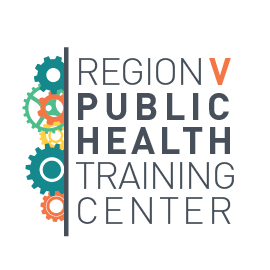Summary
Public health and healthcare – along with funders, nonprofits, and the business community – have a role to play in advocating with and for community health workers. Systemic support of this vital workforce starts with listening to CHWs, increasing our knowledge of how CHWs are essential in centering the lived experience of people in communities most impacted by unfair policy, practice and resource allocation.
By partnering across sectors, we can work together to shine a light on these essential workers, ensure more CHWs are in local communities, are fully supported and sustained, and create career pathways through leadership opportunities within our systems – well into the 21st Century.
By Carrie Carroll, MPA, Sustainability Strategy Leader, and Marcia Morales Villavicencio, MPH, Wisconsin Community Health Worker Outreach Coordinator
University of Wisconsin Population Health Institute
Community health workers (CHWs) are increasingly looked to as a vital workforce in the creation of a stronger public health system for all in the United States.
Trusted voices who help create critical connections between community residents and health/social care systems, CHWs draw on valuable lived experience, as well as unique training. CHWs are essential workers who can be transformative to major systems such as health care – helping patients with everything from navigating complex healthcare and social services to reducing social isolation, a key factor in poor health outcomes. This article on how cities are working to address staggering rates of asthma includes how CHWs are pivotal for sustainable care.
Despite the wealth of evidence on the effectiveness of CHW programs which has led to increased federal support for training, this important segment of the workforce is still vastly reliant on volunteerism or funds from short-term program grants to small and under-resourced community-based organizations. To help bolster the CHW workforce, additional federal investments include Envision which provides training and technical assistance nationwide.
Envision was created through $4 million in CDC funding awarded to the Wisconsin Department of Health Services and is a partnership between the University of Wisconsin Population Health Institute (UWPHI), the University of South Carolina – Center for Community Health Alignment, and Louisiana State University. Envision also provides guidance on how to plan for long-term funding for CHWs at the local, county and state levels.

Lakeeta Watts, left, and Sherri Ohly, co-director of the Envision Community Health Worker Training and Technical Assistance Center at the UW Population Health Institute, holds Watts’ son Isaiah at Watts’ home in Milwaukee. Ohly trained Watts in 2018 as a community health worker and Watts later created Essentially Empowered to help those who have experienced trauma.
UWPHI’s Marcia Morales Villavicencio has served as a promotora de salud, the term in Spanish for a CHW. Morales Villavicencio’s first-hand experience coupled with her degree in public health help ground her practice in community while addressing systems change efforts with national reach such as through the new Envision program.
Morales Villavicencio operationalizes her lived experience to bring the CHW and health equity perspective to inform public health workforce efforts. She promotes the need and benefits of partnerships across sectors for a strong and sustainable CHW workforce. For example, partnerships with university-based Public Health Training Centers alongside national, state, and local entities can support and strengthen this influential cadre of lay health workers.
“Only by working in collaboration across sectors, systems, and organizations can we solve the challenges that impact this essential workforce,” Morales Villavicencio said. “Workforce equity, a living and thriving wage, and sustainability are priorities that need to be addressed.” She added, “CHWs are a wonderful example of what Public Health 3.0 with more collective action looks like in the 21st Century.”
As federal infrastructure investments help to build a more robust and viable workforce, it’s important for everyone – from community residents to medical residents, and from public health leaders to healthcare executives – to fully consider the opportunity and role of CHWs as well as solutions for sustaining and fully financing their opportunities to advance health and equity.
Do you know the ABCs of community health workers where you live and work?
Building collective knowledge of CHWs and the value they bring to the public health and healthcare sector workforce is an important part of maximizing and sustaining programs. Below are some suggestions for how you can get started in growing your understanding of the landscape related to CHWs near you.
Assess: Who are the CHWs in your community? What are their roles, for example in delivering services and advocating for patients? Do you have relationships with your state’s association for CHWs? Visit the National Association of Community Health Workers to learn more about CHWs.
Backing: How are CHWs supported? For example, are they trained and compensated appropriately for their expertise? Are they integrated into the local health care system? What are the local training opportunities for CHWs? Are there meetings you can join to listen and learn? How might public health and healthcare engage more with CHWs and ensure they are part of decision-making conversations?
Community needs: How are CHWs helping to impact health and racial equity? Who are they reaching that might otherwise experience gaps in care and services? Organizations already supporting and employing CHWs are uniquely positioned to share information and insights on local context, needs and community strengths.
Sustainability: Are there funding mechanisms, policies, training, etc. in place to sustain CHWs as essential public health, healthcare, and social sector workers? For example, some states reimburse for CHW services through their Medicaid program. National experts have compiled policy recommendations to respect, protect and partner with community health workers.
To learn more, check out these resources:
- Toolkit: Public Health Departments Contracting with Community-based Organizations to Implement Community Health Worker Programs
- Fact Sheet: Community Health Workers: Evidence of Their Effectiveness
- Brief: Lessons for Advancing and Sustaining State Community Health Worker Partnerships
- Case Examples: Statewide Training Approaches for Community Health Workers
- Website: Core CHW Roles
- Brief: Sustainable Financing of Community Health Worker Employment
- Blog: Developing Meaningful and Effective Partnerships between State Leaders and Community Health Worker Associations
- Brief: Hiring Practices That Support State Integration of Community Health Workers
- Tools & Resources: Public Health Training Center Community Health Workers Resource Guide
- Policy Recommendations: National Association of Community Health Workers Calls on Public and Private Institutions to Respect, Protect, and Partner with Community Health Workers to Ensure Equity

